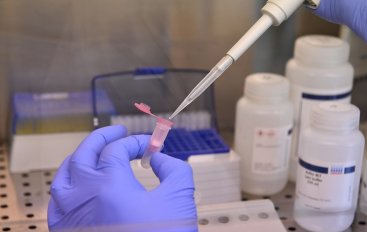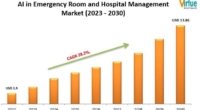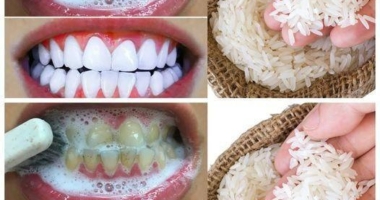Access to quality healthcare at affordable costs is one of the biggest challenges in India today. While the country has a large number of qualified healthcare professionals, there is still a long way to go in terms of building a healthy nation. The standardisation of the healthcare system in India gets challenging due to the sheer size and diversity of the country, but it is essential to provide easy access to healthcare in all tiers, including rural and tribal areas. India has the largest number of healthcare professionals in the world, making it a prime destination for medical tourism. Centralised purchasing helps reduce costs and make healthcare affordable to the masses. Both single-speciality chains and multi-speciality hospitals co-exist to cater to the varying needs of patient groups. The co-existence of both models is vital. India needs to act quickly to make healthcare affordable to its young population before their earning capacity proportionately decreases. Incentivising doctors to serve in tier-2 and -3 cities as well as in villages can help address the issue of low doctor-patient ratios in India.
Technology Development Board approves Rs 15 crore support for Huwel Lifesciences’ RT-PCR reagents that can be stored at room temperature
The Technology Development Board, a statutory body under the Department of Science and Technology, Govt. of India, has approved Rs 15 crores in support of the total project cost of Rs 40 crores for Huwel Lifesciences, Telangana. The agreement between the two entities is for the ‘Validation and Commercialization of Rapid Real time PCR reagents for storage and transport at room temperature’.
Molecular biology has transformed the healthcare system by providing quick and accurate diagnosis, particularly for life-threatening diseases such as cancer, infectious diseases, diabetes, and neurological disorders. Molecular diagnostics is the detection of genomic variants that aim to facilitate detection, diagnosis, classification, prognosis, and monitoring response to therapy. Real-time RT-PCR is a platform technology that amplifies DNA and RNA and detects it on a real-time basis.
The COVID-19 pandemic has changed the way molecular testing is perceived. RT-PCR has become the gold standard for COVID-19 testing worldwide, and RT-PCR machines have now reached district-level hospitals in India. With the reduced load of COVID-19 testing, these machines can now be utilized to screen for various infections, cancers, and genetic diseases other than COVID-19.
However, current RT-PCR reagents need to be transported and stored at sub-zero (-20) temperatures. Given the diverse climatic and socio-economic conditions of India, it is a challenging task to ship and store these reagents in tier 2 and tier 3 towns. The cost of dry ice shipping and improper storage has hindered the implementation of RT-PCR testing for disease diagnosis.
To overcome this challenge, the TDB has extended financial assistance to M/s Huwel Lifesciences, which has developed a room temperature stable RT-PCR reagent. The reagent can be completed in 30-35 minutes, lyophilized, stored and transported at room temperature, suitable for field testing, single test for multiple diseases (Multiplex), and can be performed on any open platform RT-PCR machines.
The reagent has great market potential as it may open up a large segment of markets in tier 2 and tier 3 towns and significantly reduce shipment costs. Under the project, the company plans to set up a cGMP manufacturing facility to produce PCR reagents stabilized at room temperature and RT-PCR kits using such reagents for both domestic and international markets.
Huwel Lifesciences’ RT-PCR reagents can now be stored at room temperature
Huwel Lifesciences, Telangana, has received support from the Technology Development Board (TDB), a statutory body under the Department of Science and Technology, Govt. of India, for their new room temperature stable RT-PCR reagents. The TDB has approved Rs 15 crores in support of the total project cost of Rs 40 crores for the ‘Validation and Commercialization of Rapid Real time PCR reagents for storage and transport at room temperature’.
Currently, RT-PCR reagents need to be transported and stored at sub-zero (-20) temperatures, making it difficult to ship and store in tier 2 and tier 3 towns. However, Huwel Lifesciences’ new RT-PCR reagents can be stored and transported at room temperature, making it more accessible and cost-effective for the masses in these regions. The reagents can be completed in 30-35 minutes, lyophilized, and suitable for field testing, single test for multiple diseases (Multiplex), and can be performed on any open platform RT-PCR machines.
The new reagents hold great market potential and can significantly reduce shipment costs, potentially opening up large segments of markets in tier 2 and tier 3 towns. The company plans to set up a cGMP manufacturing facility to produce PCR reagents stabilized at room temperature and RT-PCR kits using such reagents for both domestic and international markets.
According to an official release, 92.14 crore covid tests have been conducted in India so far, out of which 1,10,522 tests were conducted in the last 24 hours. India’s active caseload currently stands at 13,509, with 3,016 new cases of covid-19 recorded in the last 24 hours. The total recoveries are at 4,41,68,321 with 1,396 recoveries in the last 24 hours. Currently, India’s recovery rate stands at 98.78 per cent.
Under the mass vaccination drive in the country, 220.65 crore total vaccine doses (95.20 crore second dose and 22.86 crore precaution dose) have been administered, of which 15,784 doses were administered in the last 24 hours.
On Wednesday, NATHEALTH’s President, Dr Ashutosh Raghuvanshi, commented on the ongoing tussle between Rajasthan’s government and the state’s private doctors. He stated that India’s National health policy 2017 unveiled the intent of enacting a universal health policy with the universal right to health for its citizens. Rajasthan is the first state to legislate such a policy, and protests have ensued among private providers and clinicians.
NATHEALTH requests Rajasthan Government to establish operational framework for universal health policy
Dr Ashutosh Raghuvanshi, the President of NATHEALTH, recently commented on the ongoing tussle between Rajasthan’s government and the state’s private doctors. He stated that India’s National health policy 2017 unveiled the intent of enacting a universal health policy with the universal right to health for its citizens. However, Dr Raghuvanshi believes that the rights and obligations of such a policy have to be carefully balanced and an operational framework needs to be established with accountability on each counterparty. This has to be deliberated upfront and agreed upon between major stakeholders. He further added that UHC has never been achieved anywhere in the world where the private sector fears that public good will be delivered at private cost.
The Rajasthan Government has passed a bill legislating a universal health policy. Dr Raghuvanshi believes that the bill raises significant questions that weigh in on private providers around operational viability, financial sustainability, patient privacy, and the increased legal and criminal cases that will be lodged against doctors who are already victims of physical violence.
He requested that the Rajasthan Government puts this bill on abeyance till a consensus is achieved and an operational framework is established. Dr Raghuvanshi enumerated that UHC can only happen with the active participation of public with private sector, but it requires serious commitments – political, financial, technical, and operational and involves consensus building upfront among key stakeholders. NATHEALTH stands ready to support all governments- central and state, to outline the positive role the private sector can play in such a UHC framework and work collaboratively to help build consensus.
Central Government provides full exemption from basic customs duty for Rare Diseases
The Central Government of India has provided full exemption from basic customs duty on all drugs and Food for Special Medical Purposes imported for personal use for the treatment of all Rare Diseases listed under the National Policy for Rare Diseases 2021 through a general exemption notification. Drugs generally attract basic customs duty of 10 per cent, while some categories of lifesaving drugs and vaccines attract a concessional rate of 5 per cent or Nil.
To avail this exemption, the individual importer has to produce a certificate from Central or State Director Health Services or District Medical Officer or Civil Surgeon of the district. While exemptions have already been provided to specified drugs for the treatment of Spinal Muscular Atrophy or Duchenne Muscular Dystrophy, the Government has been receiving many representations seeking customs duty relief for drugs and medicines used in the treatment of other Rare Diseases.
TDB expresses support for Huwel Lifesciences’ innovation
Rajesh Kumar Pathak, IP&TAFS, Secretary, TDB praised Huwel Lifesciences for their innovation that has the potential to transform the current practice of transporting and storing RT-PCR reagents. The current process requires sub-zero (-20 Degrees) temperatures, but the new innovation enables storage at room temperature, making it more accessible to people in Tier 2 and 3 cities. Pathak expressed that supporting cost-effective technologies that improve existing processes has always been TDB’s approach, making it accessible to the common man. He also wished the company much success.
COVID-19 Updates from India
India recorded 3,016 new cases of COVID-19 in the past 24 hours, with an active caseload of 13,509, according to a press release by the Union Ministry of Health and Family Welfare. India’s total recoveries have reached 4,41,68,321, with 1,396 recoveries in the past 24 hours, resulting in a 98.78% recovery rate. The daily and weekly positivity rates stand at 2.73% and 1.71%, respectively. The release also stated that 92.14 crore COVID tests have been conducted in India so far, with 1,10,522 tests performed in the past 24 hours. In addition, under the mass vaccination drive in the country, 220.65 crore total vaccine doses have been administered, including 95.20 crore second doses and 22.86 crore precaution doses.
NATHEALTH President’s statement on Rajasthan’s UHC policy
NATHEALTH’s President, Dr Ashutosh Raghuvanshi, spoke on Rajasthan’s ongoing tussle between the government and the state’s private doctors regarding the universal health policy (UHC). He stated that the intent to have a universal health policy with the universal right to health for its citizens was unveiled in the National health policy 2017. However, after over five years, Rajasthan is the first state to legislate such a policy. The bill raises significant questions about private providers around operational viability, financial sustainability, patient privacy, and increased legal and criminal cases. Dr Raghuvanshi enumerated that UHC has never been achieved worldwide, and a consensus is needed upfront among key stakeholders to outline the positive role the private sector can play in such a framework.
Customs duty exemption on drugs for rare diseases
The Indian government has given full exemption from basic customs duty on all drugs and Food for Special Medical Purposes imported for personal use for the treatment of all Rare Diseases listed under the National Policy for Rare Diseases 2021 through a general exemption notification, according to the Ministry of Health and Family Welfare. The exemption will help patients with rare diseases and result in substantial cost savings as the cost of treatment for some rare diseases may vary from Rs 10 lakh to more than Rs 1 crore per year. In addition, Pembrolizumab (Keytruda), used to treat various cancers, has been fully exempted from basic customs duty.
Pharma sector mutual funds may be bouncing back
Investors in the Pharma Sector Mutual Fund schemes have had a rough time in the past three years, earning a meager return ranging from -5% to +3% on an annualised basis, depending on their choice of fund. However, two AMC’s, ICICI Prudential with its P.H.D (Pharma, Healthcare & Diagnostics) Fund and Mirae Asset Global Investments with its Mirae Asset Healthcare Fund, have launched NFO’s (New Fund Offerings) in this space, indicating that the sector may be bottoming out now. Senior Research Analyst and Fund Manager, Vrijesh Kas
UTI Mutual Fund Head of Research optimistic about Indian pharma sector
Sachin Trivedi, Head of Research at UTI Mutual Fund, is optimistic about the Indian pharma sector. He believes that many companies have learned from their compliance challenges with the USFDA, and the pace of product approval is expected to improve going forward. Trivedi also believes that the India business, which is a significant contributor to the profit pool for many companies, should start to register growth after facing difficulties in the last few quarters due to demonetization and the implementation of GST.
The healthcare sector is seen as a relatively solid structural story with factors such as rising lifestyle diseases, medical tourism to India, and increasing government spending towards the sector, auguring well for the space over the long run. ICICI Prudential and Mirae Asset Global Investments have recently launched NFOs (New Fund Offerings) in this space, showing that confidence in the sector is growing.
Although UTI AMC’s Healthcare offering, at Rs. 385 Crores of AUM, has yet to gather steam where asset mobilization is concerned, this could be due to the fact that counterparts such as Reliance Pharma Fund and SBI Healthcare Opportunities Fund have made deeper inroads in this space. The Price to Earnings Ratio of the Nifty Pharma sector index is still hovering around 50X (the same as its highs of 2014), which may be indicative of undervaluation within the sector.
Nifty Pharma sector index may be undervalued
S Naren, ED & CIO, ICICI Prudential AMC, believes the valuation of the sector is attractive with both top-down and bottom-up approaches favoring allocation towards the sector. He says that the concerns surrounding the pharma sector have been priced in at current levels and that strong balance sheets, capable management, and cash generation ability of the pharma space can do justice to the long-term value creation for investors. This is why ICICI Prudential has launched its P.H.D (Pharma, Healthcare & Diagnostics) Fund.
Founder of CallHealth Services speaks about the future of the healthcare sector
Sandhya Raju, Founder of CallHealth Services, believes that in 10 years from now, access to information, knowledge, and self-diagnosis will improve dramatically, aided by AI and non-invasive medical/diagnostic tools. She also emphasizes the importance of disease prevention and wellness as we face greater and newer health challenges due to our collective lack of respect for the environment and unabashed abuse of the ecosystem.
Investors looking to invest in the healthcare sector should keep in mind that sectoral funds can be volatile and unpredictable in the short term. A judicious allocation of no more than 10% of the overall equity portfolio is recommended.
Abu Dhabi-based Indian billionaire, B.R. Shetty, founder and chairman of BRS Ventures, believes that India’s healthcare system faces the challenge of providing access to quality healthcare due to its sheer size and diversity. Although the healthcare sector is one of India’s largest in terms of revenues and employment, the doctor-patient ratio in India remains abysmal. Shetty notes that the healthcare system in the UAE is well-regulated with ethical practices in place. He has built a healthcare empire in the UAE over the past four decades and is now foraying into India. Shetty believes that his experience of building successful healthcare institutions in the UAE can be used to build a similar healthcare system in India that adheres to the highest standards of care.
Key Challenges in the Indian Healthcare Sector Today
The biggest challenge in India’s healthcare sector today is the lack of access to quality healthcare. Despite having a large number of qualified healthcare professionals, the country requires many more. Although there are several organisations that work towards the betterment of society, a lot more needs to be done to create a healthy nation. A significant proportion of the population has limited access to quality healthcare at affordable costs. Most quality healthcare facilities are located in metropolitan areas and need to be extended to rural and tribal regions and tier 2/3 cities. Additionally, India’s ability to deal with pandemics as a nation needs improvement.
A Comparison of the Healthcare Systems in UAE and India
Comparing the healthcare systems in the UAE and India is challenging because India is a diverse country with a vast population. The healthcare system in the UAE is well-regulated with ethical practices in place, and healthcare policies are relatively more comfortable to implement and sustain. Insurance plays a crucial role in covering the costs incurred by patients. The country’s large expat community also aids in the smooth functioning of the system.
In contrast, standardising India’s healthcare system is challenging due to its sheer size and diversity. However, it is achievable, but it will take longer.
Lessons India Can Learn from the Global Healthcare System
India can learn several lessons from the global healthcare system, such as implementing policies that prioritise public health over profit margins. Healthcare providers should adopt ethical practices and focus on long-term solutions to chronic issues such as the rising prevalence of non-communicable diseases. India should also adopt a data-driven approach to healthcare, leveraging technology such as artificial intelligence and blockchain to improve the quality of care and eliminate fraudulent insurance claims. Finally, the Indian government should invest more in public healthcare and extend access to quality healthcare to underprivileged sections of society.
India’s healthcare system: lessons from around the world
The healthcare systems around the world are highly fragmented and are designed based on the requirements of their population. In the US, the general practitioner (GP) acts as the primary filter in recommending patients to specialists, while in the UAE, the system is pretty much similar. However, in India, people with higher economic status tend to visit the best doctors, and there is a need to make the GP and primary healthcare system more robust.
India’s contribution to the world of health systems
India has the largest number of healthcare professionals in the world and medical students in India get the highest exposure to varying disease training. With a growing young population, the number of specialities in India are much more than the West where the focus is on geriatric care. Medical tourism is a new and upcoming area of business in India, with increasing numbers of patients travelling to India for high-quality medical facilities that are more affordable compared to the West. The medium of medical education in India is English, which allows Indian doctors to practice comfortably in any part of the world.
Making healthcare affordable for the masses in India
Making quality, ethical healthcare affordable to the masses is a pressing issue in India. BR Life, an Indian healthcare business, aims to achieve this by setting up a corporate office in Bengaluru, leveraging its buying power, and passing on cost benefits to end consumers. With a central procurement team and a main operations team in place, operational and supply chain efficiency is brought in.
Lessons for India’s healthcare system
Access to quality healthcare is one of the biggest challenges in India today, with a large section of the population wanting access to quality healthcare at affordable costs. While most quality healthcare facilities are present only in big cities, they need to be extended to tier 2/3 cities and rural and tribal areas as well. India needs to make the GP and primary healthcare system robust, which can be easily set up across all tiers, thus ensuring easy healthcare access to people and lightening the load on hospitals.
India has a lot to offer in terms of health systems to the world, with a high number of healthcare professionals and medical students gaining exposure to a wide range of diseases. By making healthcare affordable to the masses and focusing on strengthening the primary healthcare system, India can improve the health of its population and contribute to the world of healthcare systems.
Views on the government’s ‘ease of doing business’ and ‘Make in India’ initiatives
India is a diverse country with different regions having different rules and regulations. Therefore, the government’s initiative of ‘ease of doing business’ is very welcome as it will streamline the rules and regulations to a great extent. This will not only help domestic players, but also attract foreign investors, which, in turn, will increase the foreign exchange reserves.
‘Make in India’ is a very important initiative as well. India has a lot of potential, especially with the young population, and if the government can provide them with the right platform, it will go a long way. It will also encourage entrepreneurship and innovation.
India is slowly but surely making its mark in the global market. The government’s initiatives will go a long way in creating a robust healthcare system that will be able to cater to the masses.
BR Life has signed a Memorandum of Understanding (MoU) with the Telangana government to set up a pharmaceutical manufacturing and R&D unit on approximately 20 acres of land. They will also set up a medical device manufacturing unit, multi-specialty hospitals, and higher education institutions in India. BR Life is optimistic about the growth and establishment of their businesses across several verticals with the support of the Indian government.
Don’t miss interesting posts on Famousbio









